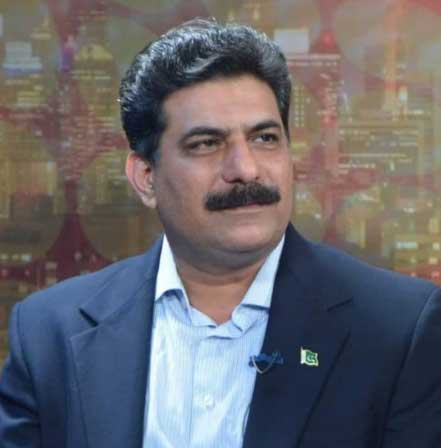There is something sinister about the present political climate in the country. While the previous prime minister is on the offensive to destabilize the system, the new incumbents are paralyzed. Not only is there political uncertainty, but the economy is also on a fast decline, which is extremely concerning. A month later, the new administration has yet to choose its direction. The possibility of a systemic breakdown is unsettling. From whence do we proceed?
It has been a stunning turn of events over the past several weeks, as seen by Imran Khan’s large public rallies, that his popular support has surged. Not only has his ultranationalist and conspiratorial narrative gained popularity with the youth and urban educated middle classes, but the restoration of dynasty family control has also bolstered his appeal. Ironically, only weeks after his fall from glory, the former prime minister dominates the political discourse.
Imran Khan is currently threatening to invade the capital with a literal million-man march. He is not just attacking the new regime, a disorganized coalition of diverse political groupings, but also the military leadership, which supported his prior coalition control until it decided to withdraw its support. He has now removed his gloves.
Recent remarks he made at a public rally in Abbottabad left little to the imagination. Unsurprisingly, the military has responded strongly to Khan’s words. The former prime minister is unlikely to be deterred by the admonition that the military must not be drawn into the political conflict. His strategy is quite clear: to exert pressure on the establishment and other state institutions and to demand fulfillment of his terms.
Due to the seeming collapse of the political system, Imran Khan’s mission appears to have become considerably simpler.
The teetering administration and near-collapse of the political system appear to have made his job considerably simpler. As a result of more than 120 PTI members resigning, the National Assembly has become dysfunctional. In these circumstances, it is difficult for the coalition of over a dozen political parties led by the PML-N to survive the PTI’s assault. The point for concern is not the unusual warmth, but the escalating political temperature.
Lahore’s position is far direr than that of Islamabad. It has been several weeks since the administration of the country’s largest province was operating. Even though the new prime minister has been sworn in, there is no government in place. In the meantime, the destiny of the incoming chief minister remains uncertain due to the possibility of more than two dozen PTI defectors losing their seats.
In such a scenario, the PML-N chief minister’s survival is quite improbable. In the province, the game of thrones is far from done. The Punjab issue also casts a shadow over a wobbly and directionless central coalition government. The struggle inside the PML-N ranks is mostly a reflection of disagreements within the Sharif family and has exacerbated the impasse.
With the father-son combo at the head in the center and Punjab, it may appear that power has transferred to the other branch of the Sharif family, but the elder Sharif in London still has the true authority. This polarity appears to be one of the causes of the chaos.
It is most evident in the government’s reluctance to take necessary actions to avert an economic and financial catastrophe. The delay has already accelerated the decline, creating the specter of a financial disaster comparable to Sri Lanka.
While the stock market has collapsed in tandem with the rupee’s precipitous decline against the dollar, the administration remains unclear on the steps that must be taken immediately to arrest the rot. No one appears to be in command of the economy. Intriguingly, the position of Finance Minister Miftah Ismail is being damaged by Ishaq Dar’s inconsistent assertions made from London.
While the finance minister is engaged in discussions with the IMF for the resurrection of the delayed $6 billion loan package, Dar’s comments on Pakistani television stations present an entirely different perspective. The former finance minister, who is regarded to be quite close to Nawaz Sharif, appears to oppose all necessary procedures to meet the Fund’s conditions.
Intriguingly, Pakistan’s finance minister has signaled a price increase for petroleum goods, citing IMF demands for the elimination of fuel subsidies, while pledging targeted assistance for the extremely poor. According to the government’s own calculations, the petroleum product subsidies for the months of May and June would result in a loss of about Rs100bn.
Dar, meanwhile, is opposed to such measures. His recommendations are tremendously detrimental to an economy that is already in desperate difficulties. Due to the ongoing financial hemorrhaging caused by massive subsidies on petroleum and other commodities, his proposals are a formula for disaster. An extension of the deal with the IMF would bring irreparable harm to the economy.
It would also impact our financial support agreements with Saudi Arabia and China. This scenario cannot be maintained. Increasing political polarization has unquestionably made the government’s job more difficult. However, inaction will be tremendously costly for the nation.
It is possibly the biggest political and structural catastrophe the nation has faced in the previous few decades. The route out of the predicament is a crucial concern. The disruptive approach of Imran Khan has made it more difficult to find a political resolution to the problem. In any other circumstance, holding elections would have been the most effective means of defusing the issue. However, given the current political polarization, this may not be possible.
Imran Khan’s position is “my way or the highway.” His dictatorial tendencies and disregard for the state and democratic institutions have contributed significantly to the country’s descent towards chaos. In the absence of a democratic solution, however, extra-constitutional intervention is always a possibility. Such a situation would be devastating for the nation’s unity and integrity.
Sign in
Welcome! Log into your account
Forgot your password? Get help
Password recovery
Recover your password
A password will be e-mailed to you.







